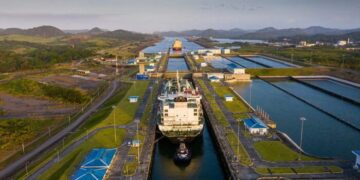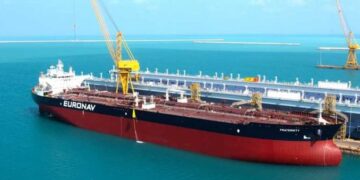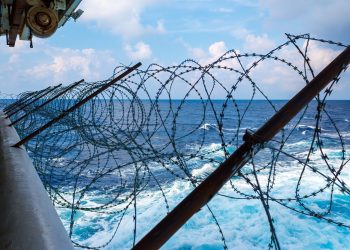The recent trends in sustainability, thus the Environmental, Social and Governance (ESG) performance, are now impacting the decisions of all maritime stakeholders, along with the emerging contractual and regulatory requirements. The industry now needs not only to communicate, but to engage with an effective strategy towards sustainable shipping.
In a recent GREEN4SEA Talk, John N. Cotzias, Projects & Finance, Xclusiv Shipbrokers Inc., Bjorn K. Haugland, CEO, Skift – Business Climate Leaders, Stavros Meidanis, Managing Director, Capital-Executive Ship Management Corp. and Nicole Rencoret, Head of Partnerships and Development, Sustainable Shipping Initiative, Ship Recycling Transparency Initiative, discussed about industry’s priorities in relation to ESG performance and Sustainable Shipping and suggested ways in order shipping stakeholders to enhance effectiveness of their sustainability profile and practices.
ESG and the journey towards sustainability requires commitment and action that needs to go beyond regulation, stressed Mrs Rencoret. COVD-19 has shed light on some systemic issues in shipping around seafarers and their labor and human rights; different stakeholders are increasingly demonstrating their interest in addressing these issues which are part of the social performance.
In this turn, Mr Haugland noted that we are living in an era of major transformation across all sectors and fields. Particularly in the financial sector, more change at how they look at both ESG performance and risk happened in the last twelve months rather than last twelve years. This is a strong signal to the shipping sector, he said, mentioning that financial instruments have revealed a new perspective on ESG performance. ‘’They require 100% transparency across all data as well as reporting which will demonstrate that company culture is driving beyond compliance all the time’’ Mr Haugland stated. In essence, this process results to competitiveness across the supply chain which shipping is part of.
Sustainable shipping is coming more and more in our management agenda. We are moving to a new mindset with regards to ESG for the post COVID-19 era.
..Mr. Stavros Meidanis argued.
Mr Cotzias pinpointed that ESG is not something new for the maritime industry. Specifically, Environmental is an issue that shipping has taken account significantly while decarbonization is put on the agenda; Social is an issue that shipping is very close to, by addressing public issues and helping the society in many ways and; Governance is also an issue that industry has addressed a lot, for example with ISM code implementation.
Continuing, Mrs Nicole Rencoret highlighted that ESG issues are all related and should not be considered as different topics. In this context, she mentioned the example of SSI Roadmap to further explain her perspective. SSI has developed a Roadmap to Sustainable Shipping industry which introduces six vision areas, featuring oceans, communities, transparency, finance, energy and people. ‘’Although these are different elements, when you look at the objectives and milestones of the Roadmap, which are 60 in total, everyone can realize that they are all interlinked. ‘’ Mrs Rencoret mentioned.
When it comes to sustainable shipping ,there are many opportunities and it is difficult to distinguish which is more important. However, decarbonization is seen as a key priority for everyone at the moment. Referring to the ambitious targets set for the decarbonization journey up to 2030, Mr Bjorn Haugland noted that nine years remain for the shipping industry to reduce its total emissions in order to stay in the Paris Agreement. This is huge opportunity for shipping to be considered as a competitive means of transportation.
We need investment and we need support. In that regard, a top priority for the industry is to collaborate differently in order to be transparent..he said.
Talking from the commercial perspective, Mr Cotzias noted that we are ahead of a heavy investment of new technologies with the biggest investment to be realized in alternative fuels, alternative ship propulsion and new designs for ships. ‘’Currenlty, ESG affects all ship operations. We have put a lot on the table but I doubt if we are ready to proceed correctly and handle everything’’ he argued and referred to Poseidon Principles since these may be difficult for several companies to comply with as there are issues that need to be addressed. To remind, the Poseidon Principles offer a framework for financial institutions to lend in line with International Maritime Organization goals to halve greenhouse gas emissions by 2050.
As an industry, historically, we are not very proactive in moving forward on new regulations. On the other hand, the industry has been very effective in making an impact. Emerging trends show a change towards. Based on each stakeholder’s interests, we will see reactions on ESG, Mr Meidanis noted. For example, charterers are expected to have additional requirements.
‘’I think that ESG performance is now correlated to traditional shipping industry risks; that includes accidents, vessel detentions, pollution incidents and financial loss due to fines or reputational damage. So, we have to define how sustainable the business is as well as company’s ability to assess how its finance is affected’’ Mr Cotzias added. As a result, investors are looking to integrate ESG related risk factors in their investment processes just any other risk factor. Of course, this comes down to ESG ratings, Mr Cotzias further noted. The key issue therefore for the small- sized and medium organizations is how ready they are to be totally transparent. Especially, this will take time across such companies in the greek community, Mr Cotzias highlighted.
Apart from the Poseidon Principles, there are other standards as well for sustainability. However, all companies in the sustainability world are making an attempt to harmonize sustainability reporting. In essence, according to Mrs Nicole Rencoret, there is a demand to synthesize all these different frameworks. This consequently will assist all companies in complying smoothly with ESG requirements.
Explore more by watching the video herebelow






























































